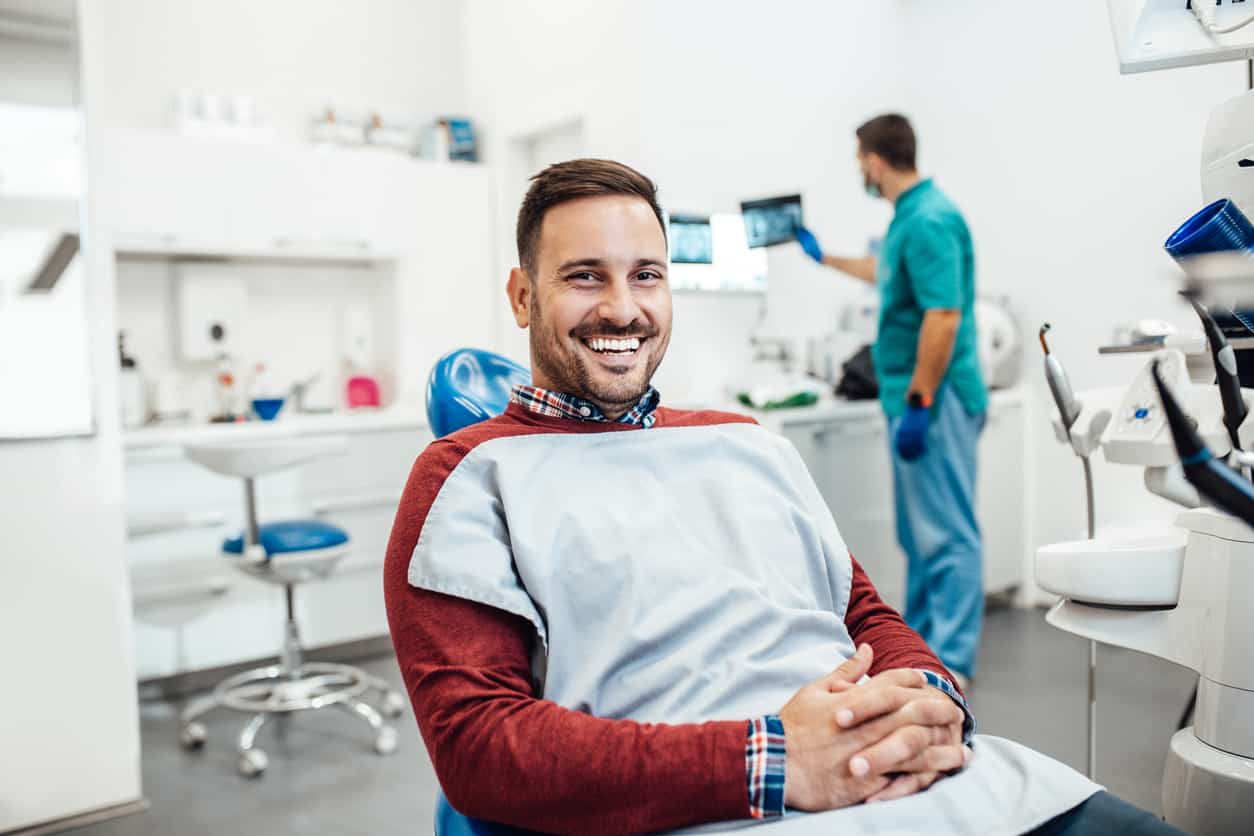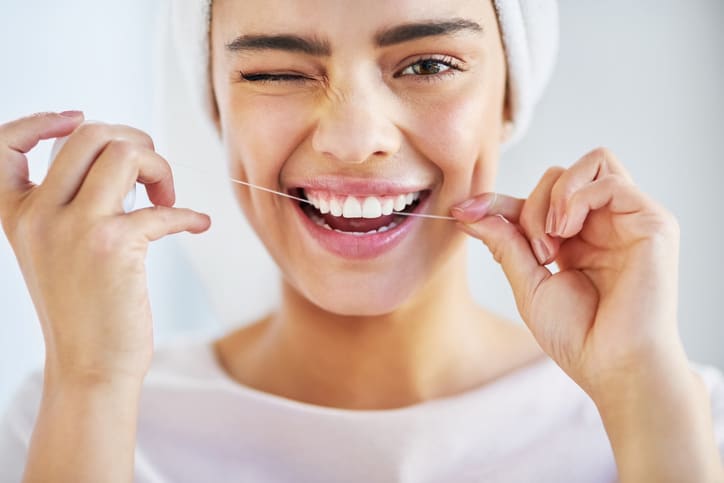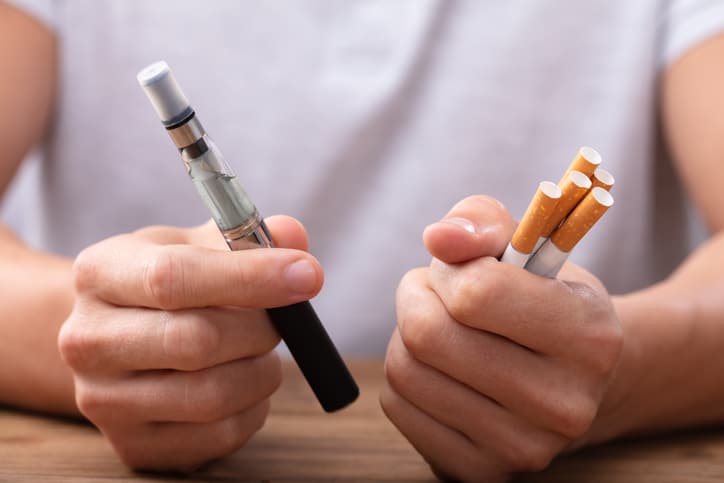Preventive Dentistry: How to Care for Your Teeth and Gums

You only get one set of teeth, and as anyone who has lost theirs can tell you, life is a lot easier with them than without them. While skilled dentists can fix a lot of problems, preventative care prevents dental woes from happening to begin with. Best of all, effective preventive dentistry doesn’t require a lot of effort or place much burden on your life. By developing a few good habits at home and committing to regular check-ups and cleanings, you can maintain healthy teeth and stave off expensive, unpleasant, and inconvenient dental work.
Here are a few ways to keep your teeth and gums healthy with preventive dentistry:
Always Brush at Least Twice a Day
Brushing your teeth is the simplest thing you can do to keep your teeth healthy and prevent dental problems. But many fail to get into the habit of brushing twice a day, every day. Even among those who brush regularly, many don’t do it properly. If you’re not brushing regularly or brushing correctly, with a few simple tweaks to your routine, you can start to get the most out of brushing.
First, use ADA-approved fluoride toothpaste, and brush for at least two to three minutes—or the length of an average song on Spotify or iTunes. Also, make sure you’re brushing with a clean toothbrush, which you can ensure by replacing every three months or so. Finally, don’t forget to brush your tongue! It’s a favorite landing spot for many types of germs and bacteria. Here are some more tips on The Do’s and Don’ts of Good Oral Health.
Floss Every Day

Why floss if you’re already brushing twice per day? Because even with all the advancements in toothbrush technology — angled heads, tapered bristles, electric brushes that spin — it’s still difficult to clean between your teeth and below the gumline. This is where tiny particles of food get lodged and begin to rot, leading to gum disease, bad breath, and other maladies.
By flossing once a day, you can dislodge these particles and keep your mouth clean and healthy. A good routine is to brush and then floss so as to not push any bacteria down below the gumline.
Watch Your Diet
Your teeth are part of your body, and your body depends on quality nutrition to stay healthy. When you eat sugary foods, you harm your teeth not only during the chewing process but slowly over time. The sugar immediately reacts with any plaque on your teeth to produce an acid byproduct that dissolves your teeth over time. Good preventive dentistry includes staying away from excess sugary foods. Your teeth and gums also need a variety of vitamins and minerals to thrive and stay healthy. Junk food is devoid of these vital nutrients.
Unless your dentist diagnoses a specific problem resulting from a specific nutrient deficiency, there is no special diet you need to follow for oral health. The same diet that keeps your body toned, fit and healthy is likely to be effective at keeping your teeth shiny and strong. Therefore, if you know your diet could use some improvement, consider talking to a nutritionist or registered dietician about easy changes you can make. Your body—and your teeth and gums—will thank you.
Avoid Tobacco Products
Few habits are worse for your dental health than tobacco use. That includes cigarettes and cigars as well as smokeless tobacco such as chew, dip, and snuff.
Among the dental problems that tobacco use can cause or worsen are:
- Gum disease
- Tooth loss
- Plaque and tartar buildup
- Tooth discoloration
- Bad breath
- Oral cancer
In addition, tobacco can even contribute to bone erosion in your jawline, leading to a weaker chin and premature aging of the face. If you have to undergo oral surgery—such as a root canal, tooth extraction, or dental implant—tobacco use can slow the healing process, increasing the chances of a dangerous infection.
Note that when it comes to your dental health, vaping and e-cigarettes are not safe alternatives to smoking. These products still contain nicotine, which is known to contribute to gum disease and tooth discoloration. They also contain unhealthy chemicals that are used to formulate the e-liquid that becomes water vapor when heated.
Limit Alcohol Intake

For one, alcohol is high in sugar, which breaks down the protective enamel that coats your teeth. Adding to the sugar content in many alcoholic beverages are the “mixers,” such as cola products and orange juice.
Alcohol can also damage gum tissue, causing it to erode from the tooth, leading to gum disease and an increased likelihood of bacterial infections.
Finally, people who drink too much often neglect to maintain basic habits of good health, such as brushing and flossing daily. That is why one of the best preventative measures you can take for your dental health is to consume alcohol only in moderation or not at all.
See Your Dentist Twice a Year, Even if Your Teeth Feel Fine
The easiest way to practice good preventive dentistry and get out in front of any dental issues is to see your dentist twice a year. Even if your teeth have always been in perfect health, set regular appointments. For one, even healthy teeth need a deep, thorough cleaning every once in a while, the kind only a dentist, with their arsenal of oral hygiene tools, can offer.
Also, many dental problems present no discernible symptoms at first. If you don’t get dental check-ups, or you only get them sporadically, a problem might fester for months or years before you become aware of it. By that point, it might be too late to treat it effectively. But if you see your dentist regularly, a simple exam or X-ray can identify the problem early, allowing for easier treatment that has a higher chance of long-term success.
For patients in Washington, D.C., or Chevy Chase, MD, Rinaldi Dental Arts offers preventive dentistry that is an enjoyable experience. To schedule an appointment today, call our office or schedule an appointment online!

